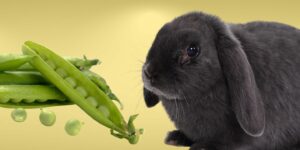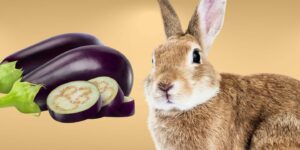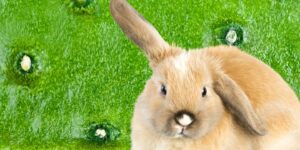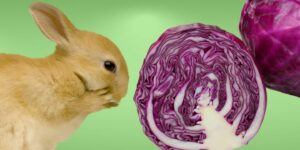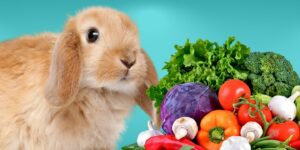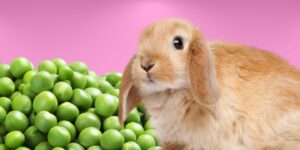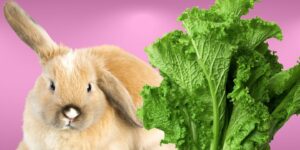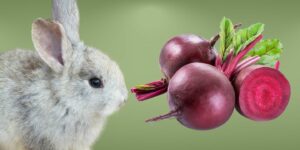The short answer is no, rabbits should not eat onions. Onions are toxic to rabbits and can cause potentially fatal anemia. This is because onions belong to the Allium family, which also includes garlic, leeks, and chives. These vegetables contain compounds that are harmful to rabbits and can damage their red blood cells, leading to anemia. Providing a healthy diet for rabbits, free from potentially toxic foods, is essential for a rabbit's long-term health and well-being.
Understanding Rabbit's Diet
Common Misconceptions about Rabbit's Diet
Many people believe that rabbits can eat any type of vegetable, but this is not true. Rabbits are herbivores and require a specific diet to meet their nutritional needs. It is crucial for rabbit owners to be aware of what foods they can and cannot feed their pet.
Importance of Providing a Healthy Diet for Rabbits
A well-balanced diet is essential for rabbits to maintain their health and well-being. This includes providing a variety of fresh vegetables, hay, and water for rabbits to have access to daily.
The Allium Family: Onions, Garlic, Leeks, and Chives
What Makes Them Toxic for Rabbits?
Onions and other members of the Allium family contain compounds called thiosulphates, which can be toxic to rabbits. When ingested, these compounds can damage red blood cells, leading to a condition called Heinz body anemia.
Symptoms of Onion Toxicity in Rabbits
Signs that your rabbit may be suffering from onion toxicity include:
- Weakness
- Loss of appetite
- Rapid breathing
Long-term Effects of Onion Consumption in Rabbits
If a rabbit ingests onions or other members of the Allium family and does not receive treatment, it may succumb to anemia or other long-term health issues.
Recognizing and Responding to Onion Poisoning in Rabbits
Signs of Onion Poisoning
If you suspect that your rabbit has ingested onions, look for signs of onion poisoning, such as weakness, loss of appetite, and rapid breathing.
Immediate Steps to Take if Your Rabbit Eats Onions
If you think your rabbit has eaten onions, it's essential to seek veterinary care immediately. Your veterinarian will assess your rabbit's condition and provide appropriate treatment.
How Veterinarians Treat Onion Poisoning in Rabbits
Treatment for onion poisoning may include supportive care, such as fluids and blood transfusions, to help your rabbit recover from the effects of the toxicity.
Preventing Onion Poisoning in The Future
To prevent future incidents, ensure that onions and other members of the Allium family are kept out of reach of your rabbit and are not included in their diet.
A Balanced Diet for Rabbits
The Role of Hay in a Rabbit's Diet
Hay is a critical component of a rabbit's diet and provides essential fiber for maintaining gut health.
Fresh Vegetables Safe for Rabbits
Safe vegetables for rabbits include:
- Leafy greens like lettuce, kale, and spinach
- Root vegetables such as carrots and parsley
Be sure to provide a variety of vegetables to ensure proper nutrition for your rabbit.
Fruits as Occasional Treats for Rabbits
Fruits can be given as occasional treats for rabbits, but they should be limited due to their high sugar content.
Foods to Avoid in a Rabbit's Diet
In addition to onions and other members of the Allium family, avoid feeding your rabbit the following foods:
- Chocolate
- Avocado
- Rhubarb
Monitoring Your Rabbit's Health
Regular Health Checkups for Your Rabbit
Ensure that your rabbit receives regular health checkups to monitor their wellbeing.
Warning Signs of Health Issues in Rabbits
If you notice changes in your rabbit's behavior or appearance, consult your veterinarian for an assessment.
Importance of a Clean and Safe Environment for Rabbits
Maintaining a clean and safe environment for your rabbit is necessary to promote their overall health and well-being.
Conclusion
In summary, rabbits should not eat onions or other members of the Allium family due to the potential risks of anemia and other health issues. If you suspect that your rabbit has ingested onions, seek veterinary care immediately. Keep your rabbit healthy by providing a balanced diet of hay and fresh vegetables, while being vigilant about the food you offer and monitoring their health.



